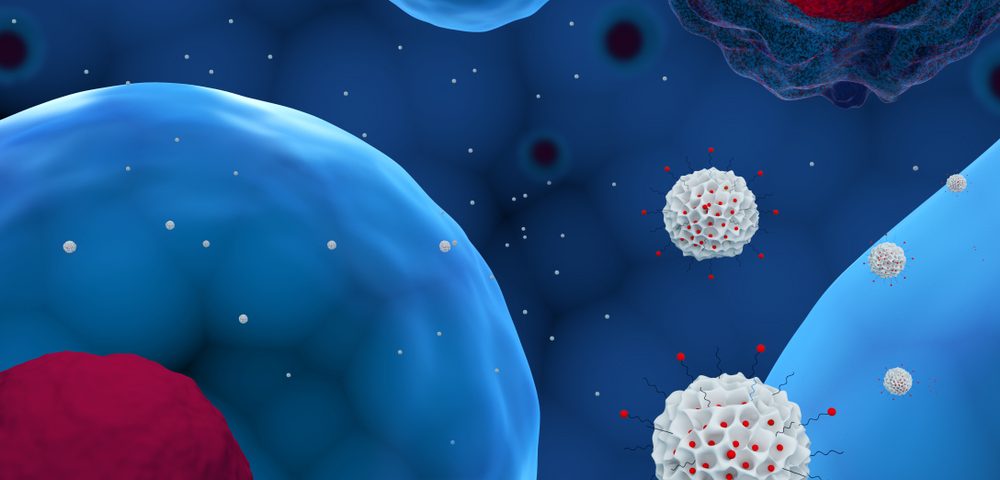Imagion Biosystems‘ experimental breast cancer detection method — involving magnetic nanoparticles that stick to breast cancer cells — will be tested in a clinical trial later this year, according to a press release.
Although breast cancer detection using mammography has saved the lives of many women, it still fails to detect 10-25 percent of tumors — mainly due to dense breast tissue — and cannot differentiate between aggressive tumors and those that are not life-threatening.
Efforts are increasing to develop new diagnostic methods that are more sensitive and effective. One of those potential strategies involves the use of magnetic nanoparticles that target and bind to cancer cells and can be detected using superparamagnetic relaxometry.
Superparamagnetic relaxometry is a technique that can tell the difference between magnetic nanoparticles bound to cancer cells and those moving freely through the body by detecting a small magnetic field released by the nanoparticles following a tiny magnetic pulse.
These magnetic nanoparticles are coated with antibodies against specific biomarkers of cancer, such as HER2 — a cell surface protein — for an aggressive type of breast cancer. High levels of HER2 in breast cancer cells leads to increased tumor growth and potential to spread.
The magnetic nanoparticles can be administered by an injection into the vein, and they will bind to the target cell due to the molecular attraction of the antibody.
Imagion Biosystems has been developing this technology — called MagSense — for several years, in collaboration with Sandia National Laboratories’ materials chemist Dale Huber, PhD. Huber played a central role in developing a highly reproducible method that generates nanoparticles of almost the exact same size, which is crucial for the cancer detection method to work.
Preclinical studies performed in mice showed that this method — using magnetic nanoparticles associated with HER2 antibodies — could specifically detect breast cancer.
The next step toward clinical testing was to transfer the method to ChemConnection, a company in the Netherlands that can produce the nanoparticles under the strict U.S. Food and Drug Administration and European Union regulations required for use in patient clinical trials.
The nanoparticles produced by ChemConnection will go through Imagion Biosystems’ preclinical studies to confirm their non-toxic nature, after which ChemConnection will produce a small lot of nanoparticles — comparable to a half teaspoon of sugar – to be tested in Imagion Biosystems’ breast cancer clinical trials.
“Because the nanoparticles are uniform and have excellent magnetic properties, we don’t need a lot. We expect that a patient will be injected with at most 1 milligram of particles,” said Erika Vreeland, PhD, Imagion Biosystems’ chief nanoparticle scientist.
The first clinical study will enroll breast cancer patients who will have the lymph nodes under the arm removed and checked under a microscope for the presence of cancer cells. This procedure is used to investigate if the cancer has spread, since those lymph nodes are typically where breast cancer will first spread.
Before lymph node removal, the magnetic nanoparticles coated with breast cancer-specific antibodies will be injected into the patients. Then, the removed lymph nodes will be analyzed by Imagion Byosystem’s cancer detection method, and the results will be compared with those of a pathologist — the standard method.
Vreeland said she hopes this method will be as accurate as a pathologist, and the future goal is to use it to detect cancer directly in the body, without the need for tissue removal.
“We believe the nanoparticles can be instrumental in a wide variety of biomedical applications including uses in treatment of cancer or other diseases,” said Bob Proulx, CEO of Imagion Biosystems.

